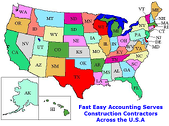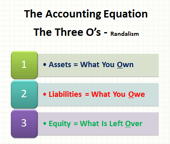
As a contractor, you’ve likely had this experience: you deliver a job estimate to a client, they accept, and you get to work. Everything goes smoothly—until halfway through the project when the client says, “Wait, I thought this included the backsplash,” or “I assumed cleanup was part of the price.”
Suddenly, what you thought was a straightforward project turns into a debate about expectations. The client feels misled, you feel frustrated, and worst of all, your profit margin starts to shrink.
The root problem? The estimate wasn’t clear enough.
In construction, your estimate is more than just a number—it’s a roadmap. It tells your client what’s included, what’s not, and sets the financial foundation for your project. A vague or rushed estimate leads to misunderstandings, disputes, and, most importantly, lost profits.
As construction bookkeeping specialists, we’ve seen time and again that contractors who take the time to create precise, detailed estimates consistently run more profitable jobs. Let’s break down why your bids should spell everything out, and how doing so protects your bottom line.
Read More
Topics:
Estimates Vs. Actuals,
Construction Bookkeeping And Accounting,
Estimating Tips And Tricks,
Construction Systems And Processes,
estimates,
Bidding in Construction
Where did the money go?
If you've ever looked at your bank account at the end of a busy month and thought, "I did all that work—so where did the money go?", you're not alone.
This is one of the most common frustrations we hear from small business owners in the construction industry. You're booking jobs, staying busy, and delivering great work—but the profit doesn't seem to match the effort.
As construction bookkeeping specialists, we've seen behind the numbers of dozens of small contractors. And time and again, we find the same hidden leaks draining their profits. The good news? Once you know what to look for, you can fix them—and finally start keeping more of what you earn.
Read More
Topics:
Contractor Profit Drains,
Construction Bookkeeping And Accounting,
outsourced construction accounting and bookkeeping,
Construction Systems And Processes,
Boost Construction Profitability,
Cash Vs. Profit
A Real-World Guide for Small Construction Business Owners
If you run a small construction business, you've probably worn every hat—from estimator and foreman to project manager and, yes, bookkeeper. Initially, doing the books yourself may have seemed manageable. But now, as you grow, you might be asking:
"Do I need a bookkeeper, or can I keep doing this myself?"
It's a valid question—and the answer depends on where your business is, where it's going, and how you manage your time and money.
As construction bookkeeping specialists, we've worked with both first-time business owners and seasoned contractors. We've seen the difference it makes when you stop guessing at your finances and start getting reliable, real-time information from a professional.
This post will break down the pros and cons of DIY versus hiring a bookkeeper, helping you determine which option is right for your business at this time.
Read More
Topics:
outsource bookkeeping,
Construction Bookkeeping And Accounting,
outsourced construction accounting and bookkeeping,
Assisted Do-It-Yourself Contractor Bookkeeping,
contractor bookeeping services,
Construction Systems And Processes,
Boost Construction Profitability
How Smart Money Management Keeps Your Business Profitable and Stress-Free
When most small construction business owners think about success, they envision a steady stream of jobs, high-quality work, and satisfied clients. But there’s another side to the story that often gets ignored: the financial health of your business.
And here’s the truth we see every day as construction bookkeeping specialists: Even skilled contractors with full calendars can run into cash flow problems, tax stress, or profit shortfalls—not because of the work, but because of the numbers.
That’s where Pillar 2: Controlling the Money comes in. In this post, we’ll talk about how to take control of your finances through simple, construction-friendly accounting practices—so you can stop guessing and start growing.
Read More
Topics:
Construction Bookkeeping,
Construction Accounting,
Construction Bookkeeping And Accounting,
Systems And Processes,
MAP vs. PAM,
Accounting,
Construction Consulting For Small Contractors,
Systems
If your company is experiencing rapid growth, you might find yourself navigating a good news/bad news situation: while your sales figures climb, managing cash flow becomes increasingly complex, pushing you to seek additional financing to meet the rising demand.
Consider this scenario: A couple wanting to sell their house expresses interest in your remodeling service, presenting an exciting opportunity that could significantly elevate your construction business.
However, they have a requirement: they want the job done in three weeks.
Now, you're caught in a challenging position. Declining could mean missing out on a lucrative partnership, yet agreeing could strain your cash reserves.
You're not alone in this struggle; many businesses face similar hurdles when scaling operations or entering new partnerships, especially when balancing cash flow and the cost of fulfilling the project on time.
Read More
Topics:
Construction Bookkeeping And Accounting,
Construction Accountant Who Listens,
Banking,
Funding,
Construction Funding
Avoiding cash flow crises is crucial for the success and sustainability of your construction business. Managing cash flow is vital for small business owners. Poor cash flow management can create significant challenges even if your business is profitable.
Cash is a fact; Profit is an opinion
A cash crisis can be emotionally devastating and even kill your business. If you've ever had to beg, borrow, and steal to cover tomorrow's payroll, you know what I mean.
Understanding cash flow
Cash flow refers to the money moving in and out of your business. Cash inflows come from sales, interest earned, and investments. Cash outflows cover rent, payroll, bills, and supplier payments. Positive cash flow means your inflows exceed outflows, while negative cash flow indicates more money going out than coming in.
Read More
Topics:
QuickBooks Contractors Financial Reports,
cash report,
Cash Flow,
Construction Bookkeeping And Accounting,
Contractor Cash Flow Problems,
Increase Cash Flow,
Improve Construction Cash Flow
Understanding financial statements might sound daunting, but small business owners like you must stay on top of your game. Each financial report offers unique insights into your company's economic status.
As a construction contractor, your financial statements provide valuable insights into your company's financial health and are essential for making informed decisions. Let's look at the critical components of financial statements and why they matter to construction contractors.
Read More
Topics:
QuickBooks Contractors Financial Reports,
Construction Bookkeeping And Accounting,
Project Management,
Financial Modeling,
Financial Statement
Handling multiple projects simultaneously is a common challenge for small construction companies. While it can signify growth and success, it comes with its fair share of struggles. From resource allocation to maintaining quality and meeting deadlines, juggling several projects can be overwhelming. However, with the right strategies, it's possible to navigate these challenges successfully.
Staying organized is crucial. With numerous tasks, deadlines, and client expectations, implementing efficient organizational strategies is critical to success. Create a centralized system for storing project-related information such as contracts, plans, permits, and client communication. Utilize project management software or cloud-based storage solutions to ensure easy access and seamless collaboration with your team.
Read More
Topics:
Multiple Companies In QuickBooks,
Multiple QuickBooks Files,
Construction Bookkeeping And Accounting,
Systems And Processes,
Project Management,
Project Management For Construction
The recent cyber outage is a stark reminder of digital systems' vulnerability and potential impact on businesses, including those in the construction industry. This incident offers several critical lessons for construction bookkeeping.
As a contractor, your accounting and bookkeeping systems are vulnerable not only to cyber threats but also to software outages, which can compromise sensitive financial data and disrupt business operations.
In this blog post, we'll explore the implications of the recent cyber outage for construction accounting and bookkeeping and provide actionable tips to strengthen your defenses.
Read More
Topics:
Construction Bookkeeping And Accounting,
Systems And Processes,
security,
cybersecurity,
Construction Systems And Processes
Managing a hectic schedule and complex projects can be challenging if you're a contractor. You must also ensure that your paperwork, documents, and contracts are in order. It's essential to keep a paper trail of your work and practice due diligence.
Keeping all your working documents in order shows that you treat your business, customers, and subcontractors responsibly. This is a mark of professionalism and can also help if you have an insurance or legal claim.
Contractor paperwork documentation and procedures
You should develop documentation and record-keeping procedures appropriate for your contracting operation or service if necessary. Once procedures are in place, it is equally important to ensure everyone understands and follows them.
Read More
Topics:
Construction Bookkeeping,
Construction Bookkeeping And Accounting,
Bookkeeper,
contractor bookeeping services,
Contractor Guidance










































